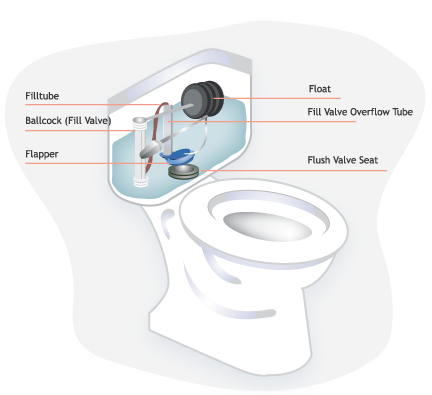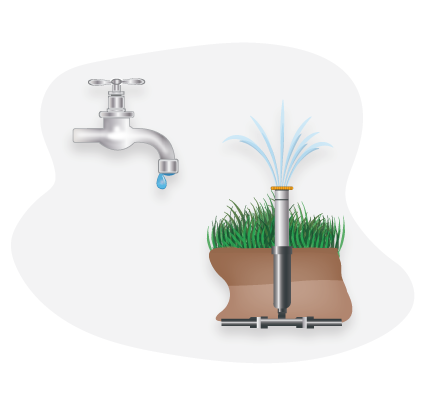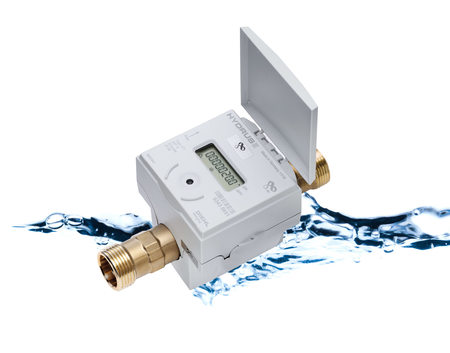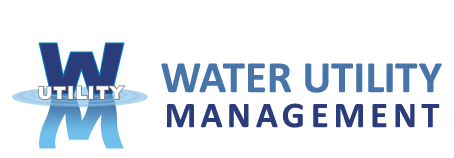HIGH WATER BILLS & COMMON CAUSES
Have you received a high water bill that you can’t explain? WUM knows that receiving a high water bill can lead to frustration and confusion, especially if you’re unsure about the cause. High water bills can be due to a number of reasons, and on this page you can learn about some of the most common causes. If you do receive an unusually high bill that you can’t explain, please contact our Customer Care team by calling (912) 352-9339 or by sending an email to CustomerCare@waterga.com. Our staff is always ready to provide billing education and to discuss water & wastewater usage habits. We are happy to assist in identifying any errors or possible culprits for irregular bills and to subsequently resolve them or offer guidance to our customers.
Seasonal Usage
There is an annual spike in water consumption during the warmer months that may be attributed to an increase in outdoor watering and irrigating of lawns and gardens. Another factor is more outdoor water recreation, like filling pools or running the sprinklers for the kids to splash around in. For guidance on reading your meter, please visit our How to Read A Water Meter page.
Irrigation Habits
Irrigation systems, even those that are free of leaks or malfunctions, still greatly increase the household usage which in turn affects the bi-monthly billing amounts. Let’s assume a typical sprinkler from a standard garden hose runs for one hour and uses about 1,020 gallons of water; if you run it three times per week, that is about 12,240 gallons per month. Interested in calculating your home water use? Access a home water audit here.
Could you have a leak?
Please see below for possible leaks and ways to identify them.

Irrigation/Faucet Leaks
A possible cause of a high water bill is a leak in your faucet or irrigation system. Depending on the severity of the leak, a faucet may waste as much as 20 gallons of water per day. Check each faucet individually for signs of visible leaks. Automated irrigation systems should be checked regularly to be sure they are functioning properly and have no leaks or broken sprinkler heads.

Toilet Leaks
A leaking toilet or a toilet that continues to run after being flushed is one of the most common household leaks. A continuously running toilet can waste up to 200 gallons a day and can double a family’s typical water use and bill. You should check for the most common leak: a deteriorated or defected flush valve (flapper) ball at the bottom of the toilet tank. If it does not make a tight seal, water will leak into the toilet bowl.
Is it a toilet leak?
To check for this:
- Take the lid off of the tank behind the bowl, flush the toilet, then wait for it to fully refill.
- Put 10 drops of food coloring or 1 colored dye tablet in the tank.
- Wait at least 20 minutes (or longer if you suspect it is a small leak) and do not flush the toilet.
- If there is any color in the toilet bowl after that time, there is a leak.
The second most common type of leak has to do with an improperly adjusted or broken Ballcock (Fill Valve). To check for this, take the lid off of the toilet tank, flush, and see if water is draining into the overflow tubes when the tank is full.


Could it be a leaky faucet or irrigation system?
Place an empty cup underneath the faucet and check it every few hours. Don’t forget to check for leaks in cabinets below the sink and at outside spigots too.
Home and commercial irrigation systems are a common source of high water use. Watering times generally double during the summer months compared to the winter. Automated irrigation systems should be checked regularly to be sure they are functioning properly and have no leaks or broken sprinkler heads. If a sprinkler valve sticks on, it could waste an extremely large quantity of water. Many times the irrigation timer may not be programmed properly, which can lead to overwatering.

Meter Hardware
If the investigation doesn’t uncover a leak, the bill spike could be connected to the meter hardware itself. Older meters could be miscalculating usage or newer meters may be more accurate in capturing water flow compared to previous meters. Throughout 2020 and into 2021, we have been updating meter hardware to improve water usage recordings and to support future integrations with customer facing features. Please contact our office if you experience an unusually high bill, we are happy to assist customers with this matter. For more ways to conserve water and lower household usage, please visit our Conservation page.

Leak Adjustments
Known or unknown water leaks can waste hundreds and even thousands of gallons of water. It is important to routinely check your plumbing for leaky faucets, toilets, and outside taps and irrigation lines. If you experience a water leak on your property and/or receive a high water bill, you may apply for an adjustment to your bill once you have the completed repair invoice to provide to our office. For more information on leak adjustments, please contact our office via email at CustomerCare@waterga.com or visit our Leak Adjustment page.
